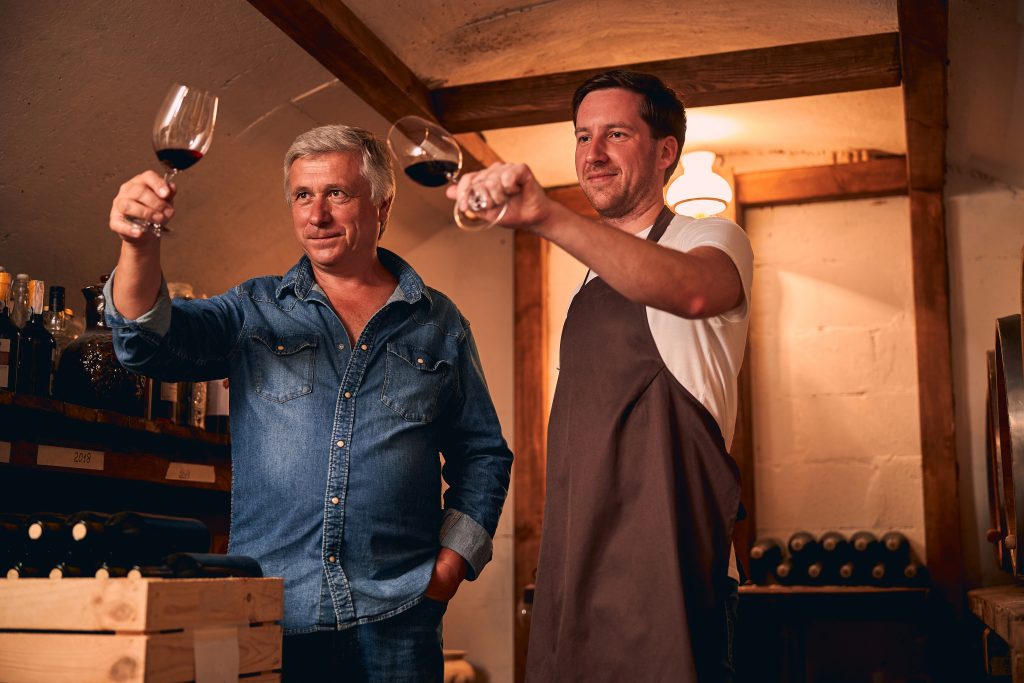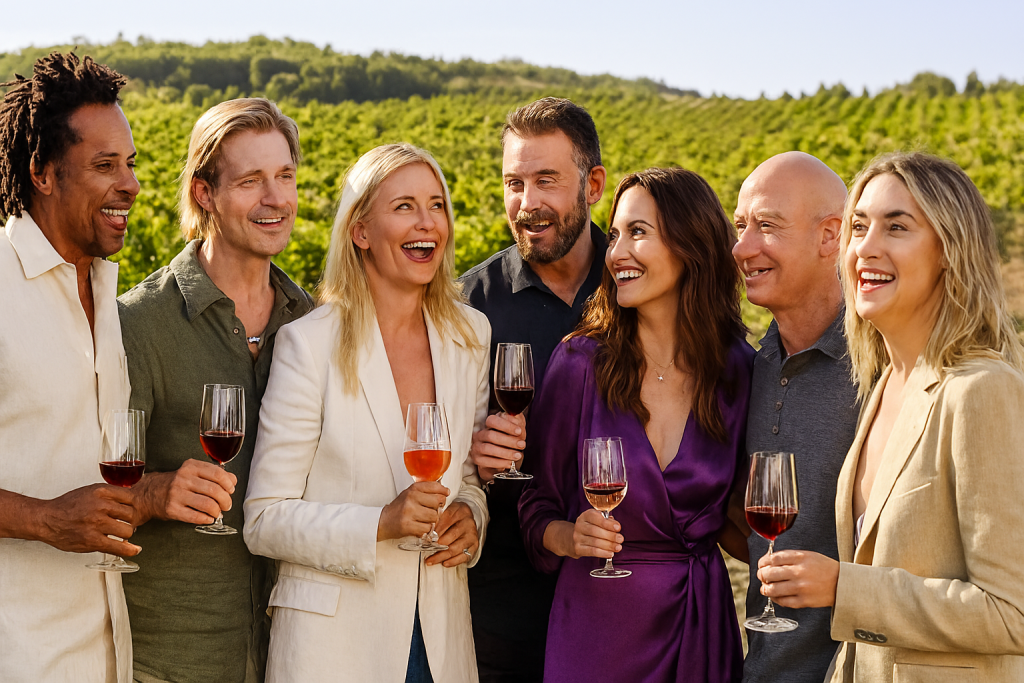Are you a wine lover who dreams of becoming a sommelier? Imagine being able to confidently select the perfect wine for any occasion, impressing your friends and family with your knowledge and expertise. In “From Novice to Sommelier: How To Choose The Best Wine Classes for Beginners,” we will guide you on your journey to becoming a wine connoisseur. Whether you’re starting from scratch or have some basic knowledge, we will help you find the best wine classes that cater to your needs and learning style. With the right guidance and education, you’ll be well on your way to becoming a skilled sommelier. Let’s uncork the secrets to selecting the perfect wine class and unlock the world of wine. Cheers to your wine journey!
Contents
- Benefits of Wine Classes
- Choosing the Right Wine Class
- Types of Wine Classes Available
- Considerations for Beginners
- Finding Reputable Wine Class Providers
- Reviews and Recommendations
- Cost and Time Commitment
- Online Vs. In-Person Wine Classes
- Specialized Wine Classes for Beginners
- Making the Most of Your Wine Class Experience
Benefits of Wine Classes
If you’re a beginner looking to expand your knowledge and appreciation of wine, taking wine classes can provide you with invaluable insights and skills. The benefits of wine education are numerous. First and foremost, wine classes teach you proper wine tasting techniques. You’ll learn how to evaluate wine using your senses, including sight, smell, and taste. This will enhance your ability to identify different flavors and aromas in wines.
Another advantage of wine classes is the opportunity to learn about wine and food pairing. You’ll discover which wines complement certain dishes, and how to create harmonious flavor combinations. This knowledge will elevate your dining experiences and impress your friends and family.
In addition, wine classes allow you to explore different wine regions. You’ll gain an understanding of the unique characteristics and styles of wines from various parts of the world. This can help you develop preferences and broaden your wine repertoire.
Furthermore, wine classes will familiarize you with wine terminology and vocabulary. You’ll learn how to describe wines using the correct terminology, enabling you to communicate effectively with other wine enthusiasts and professionals.
Choosing the Right Wine Class
Choose the perfect wine class to kickstart your journey from novice to sommelier. When choosing a wine class, there are several factors to consider that will help you make the right decision. Here are four key elements to look for in a wine class:
- Wine tasting techniques: A good wine class should teach you how to properly taste and evaluate wine. You’ll learn about the different components of wine, such as acidity, tannins, and aroma, and how to identify them in a glass.
- Wine and food pairing: Understanding how to pair wine with food is essential for any aspiring sommelier. Look for a class that covers the basics of pairing wine with different types of cuisine and teaches you how to create harmonious flavor combinations.
- Wine regions and varietals: To become a knowledgeable sommelier, you need to have a good understanding of the world’s wine regions and the varietals they produce. Look for a class that explores the major wine regions and introduces you to different grape varieties and their characteristics.
- Wine production and aging: Learning about the winemaking process and how wine ages is crucial to understanding the complexities of different wines. Look for a class that covers topics such as fermentation, barrel aging, and the effects of time on wine.
- Wine etiquette and terminology: Lastly, a good wine class should also teach you about wine etiquette and the proper terminology used in the wine industry. You’ll learn how to navigate a wine list, order wine at a restaurant, and communicate about wine confidently.
Types of Wine Classes Available
Explore the diverse range of wine classes available to expand your knowledge and enhance your wine expertise. When it comes to choosing a wine class, there are several types to consider, each offering its own unique benefits. Whether you’re a beginner looking to learn the basics or a more experienced wine enthusiast seeking advanced knowledge, there’s a wine class out there for you.
To give you an idea of the different types of wine classes available, here is a table highlighting some popular options:
| Type of Wine Class | Description | Benefits | Reputable Providers |
|---|---|---|---|
| Wine Tasting Classes | Learn to identify different wine flavors and aromas through guided tastings. | Develop your palate, improve tasting skills, and gain a deeper appreciation for wine. | Wine & Spirit Education Trust (WSET), Court of Master Sommeliers |
| Wine Pairing Classes | Discover how to pair wine with food to create harmonious flavor combinations. | Enhance your dining experiences, impress guests, and elevate your culinary skills. | International Wine & Spirits Guild, Culinary Institute of America |
| Wine Education Courses | Dive deep into the world of wine, covering topics such as grape varieties, winemaking techniques, and wine regions. | Expand your knowledge, become a more confident wine buyer, and explore new wines with confidence. | Society of Wine Educators, Napa Valley Wine Academy |
| Wine Certification Programs | Earn a professional certification in wine, such as Certified Specialist of Wine (CSW) or Certified Sommelier. | Enhance your career prospects in the wine industry and gain credibility as a wine professional. | Wine Scholar Guild, GuildSomm |
When choosing a wine class, consider factors such as the reputation of the provider, the cost and time commitment required, and the specific goals you have for your wine education. Research reputable wine class providers and read reviews from past students to ensure you’re selecting a high-quality program. Additionally, consider the cost and time commitment involved, as some classes may require more extensive study or travel.
Considerations for Beginners
As you embark on your wine education journey, it is important to understand the key considerations for beginners. Here are a few things to keep in mind as you begin your exploration of the world of wine:
- Benefits of Wine Knowledge: Learning about wine can enhance your enjoyment and appreciation of this ancient beverage. It can also help you make informed choices when purchasing and ordering wine.
- Wine Tasting Techniques: Understanding how to taste wine properly can greatly enhance your experience. Learning about the different components of wine, such as aroma, flavor, and texture, will allow you to better appreciate the nuances of each wine you try.
- Wine Pairing Basics: Knowing how to pair wine with food can elevate your dining experience. Learning about the basic principles of wine and food pairing, such as matching intensity and complementing flavors, will help you make harmonious pairings.
- Wine Regions and Varietals: Exploring different wine regions and grape varieties will introduce you to a wide range of flavors and styles. Understanding the characteristics of different wine regions and varietals will help you navigate the world of wine with confidence.
- Wine Terminology and Vocabulary: Learning the language of wine will enable you to communicate more effectively and navigate wine lists and labels. Familiarize yourself with common wine terms and vocabulary to enhance your understanding and appreciation of wine.
Finding Reputable Wine Class Providers
To ensure a quality wine education experience, it is essential to research and identify reputable providers of wine classes. When searching for reputable providers, look for those that are known for their expertise in the industry and have a strong reputation for delivering high-quality wine education. Beginner-friendly providers are particularly important as they understand the unique needs and challenges of those new to wine.
When evaluating potential providers, consider the class formats they offer. Some may offer in-person classes, while others may provide online options. Choose a format that suits your learning style and preferences. Additionally, look for providers that offer a range of class levels, from introductory courses to more advanced options. This ensures that you can continue your wine education journey with the same provider as you progress.
Industry experts should be involved in the teaching process, as they bring a wealth of knowledge and experience to the classes. Look for providers that have certified sommeliers or wine professionals leading the classes. These experts can provide valuable insights, answer questions, and guide you through the intricacies of wine.
Reviews and Recommendations
Check out the top-rated wine classes recommended by experts in the field. Here are some wine class recommendations to help you choose the best wine education resources:
- Wine Spectator School: Wine Spectator is a renowned wine magazine, and their online wine school offers a variety of courses for wine enthusiasts of all levels. Their curriculum covers topics such as wine regions, grape varieties, and food pairing.
- Coursera: Coursera is an online learning platform that partners with top universities and institutions to offer a wide range of courses. They have several wine-related courses, including “Understanding Wine: From Grape to Glass” and “The World of Wine: From Grape to Glass.”
- Wine Folly: Wine Folly is a popular wine education website that offers online courses and resources for wine lovers. Their courses cover topics such as wine tasting, wine regions, and wine production.
- Local Wine Schools: Many cities have local wine schools that offer in-person wine classes and tastings. These classes provide a hands-on learning experience and often include tasting wines from different regions and grape varieties.
Taking wine classes can have various benefits, such as expanding your knowledge of different wines, improving your wine tasting skills, and enhancing your overall wine appreciation. Whether you choose an online course or attend a local wine school, these wine class providers and their curriculum will help you on your journey to becoming a wine connoisseur.
Cost and Time Commitment
When considering wine classes for beginners, it is important to evaluate the cost and time commitment associated with each option. Cost considerations are a significant factor to take into account, as wine classes can vary widely in price. Some classes may be more affordable, while others may be more expensive due to factors such as the reputation of the instructor, the quality of the wines being tasted, or the location of the class. It is essential to determine your budget and find a class that fits within your financial means.
In addition to cost considerations, the time commitment required for the wine class is another crucial factor to consider. Some classes may be one-time events, lasting only a few hours, while others may span several weeks or even months. It is important to assess your availability and determine the level of commitment you are willing to make. Additionally, consider the flexibility of the class schedule. Are there options for evening or weekend classes? Can you make up missed sessions if needed? Understanding the class structure and schedule flexibility will help you choose the best wine class that aligns with your time constraints.
Online Vs. In-Person Wine Classes
When considering the best wine classes for beginners, you may be wondering whether online or in-person classes are the right choice for you. Both options have their pros and cons, so it’s important to weigh them carefully before making a decision.
- Pros of Online Wine Classes:
- Interactive Learning: Online classes often offer interactive features such as quizzes, virtual tastings, and discussion forums, allowing you to actively engage with the material.
- Accessible Wine Education: Online classes provide flexibility and convenience, allowing you to learn at your own pace and from the comfort of your own home.
- Cost-Effective: Online classes tend to be more affordable than in-person classes, as they eliminate the need for travel expenses and venue rental fees.
- Networking Opportunities: Online classes often have a diverse student base, providing the opportunity to connect with fellow wine enthusiasts from around the world.
- Pros of In-Person Wine Classes:
- Hands-on Experience: In-person classes offer the opportunity to physically interact with wines, tasting different varieties and learning how to properly assess their qualities.
- Personalized Feedback: Instructors in in-person classes can provide immediate feedback and guidance, helping you refine your tasting skills.
- Socializing and Networking: In-person classes provide a social atmosphere where you can meet like-minded individuals, build connections, and expand your network.
- Immersive Environment: Being surrounded by the sights, sounds, and smells of a winery or wine classroom can enhance the learning experience and create lasting memories.
Consider your personal preferences, learning style, and availability when deciding between online and in-person wine classes. Both options have their advantages, so choose the one that aligns with your goals and allows you to make the most of your wine education journey.
Specialized Wine Classes for Beginners
Explore specialized wine classes tailored for beginners to deepen your knowledge and appreciation of different wine regions and grape varieties. These classes provide a focused learning experience that allows you to delve into specific aspects of wine tasting, grape varieties, wine regions, food pairing, and wine terminology.
In these specialized wine classes, you will have the opportunity to explore the nuances of different grape varieties, such as Cabernet Sauvignon, Chardonnay, and Pinot Noir. You will learn about the characteristics that make each grape unique and how they contribute to the flavors and aromas of the wine.
Additionally, these classes will take you on a journey through various wine regions, both domestic and international. You will discover the distinctive qualities of wines from regions like Napa Valley, Bordeaux, Tuscany, and Rioja, and understand how factors like climate, soil, and winemaking techniques impact the final product.
Food pairing is another essential aspect covered in specialized wine classes. You will learn how to pair different wines with various types of cuisine, enhancing the flavors of both the food and the wine. This knowledge will enable you to make informed choices when hosting dinners or dining out.
Lastly, specialized wine classes will introduce you to wine terminology, helping you understand and articulate the different elements of wine tasting. You will learn how to describe the appearance, aroma, and taste of wine using industry-specific vocabulary, enabling you to communicate your preferences and opinions confidently.
Making the Most of Your Wine Class Experience
To maximize your wine class experience, take advantage of the various interactive activities and opportunities for hands-on learning. Wine classes offer a wealth of knowledge and skills that can enhance your appreciation and enjoyment of wine. By actively participating in these activities, you can gain a deeper understanding of the benefits of wine education, improve your wine tasting techniques, learn about wine and food pairing, explore different wine regions and grape varieties, and understand the wine production process. Here are four ways to make the most of your wine class experience:
- Engage in wine tasting exercises: Wine classes often include guided tastings where you can learn how to evaluate different wines based on their appearance, aroma, and taste. Pay attention to the instructor’s guidance on wine tasting techniques and practice describing the characteristics of each wine.
- Participate in food and wine pairing sessions: Many wine classes incorporate food and wine pairing exercises to demonstrate how certain flavors and textures complement each other. Take the opportunity to experiment with different combinations and understand how wine can elevate the dining experience.
- Explore wine regions and grape varieties: Wine classes often delve into the world of wine by exploring different wine regions and grape varieties. Take notes on the characteristics of wines from different regions and the unique qualities of various grape varieties to expand your knowledge and appreciation of wine diversity.
- Learn about the wine production process: Understanding the wine production process can deepen your appreciation for the craftsmanship and artistry behind each bottle. Pay attention to the lessons on grape growing, harvesting, fermentation, aging, and bottling to gain a comprehensive understanding of how wine is made.




